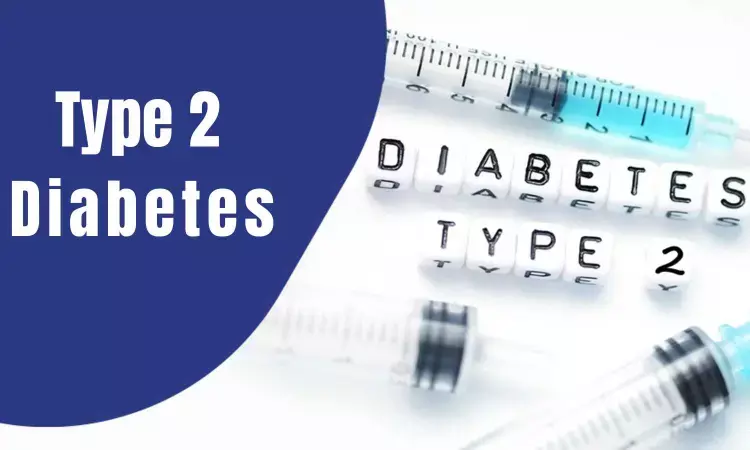- Home
- Medical news & Guidelines
- Anesthesiology
- Cardiology and CTVS
- Critical Care
- Dentistry
- Dermatology
- Diabetes and Endocrinology
- ENT
- Gastroenterology
- Medicine
- Nephrology
- Neurology
- Obstretics-Gynaecology
- Oncology
- Ophthalmology
- Orthopaedics
- Pediatrics-Neonatology
- Psychiatry
- Pulmonology
- Radiology
- Surgery
- Urology
- Laboratory Medicine
- Diet
- Nursing
- Paramedical
- Physiotherapy
- Health news
- Fact Check
- Bone Health Fact Check
- Brain Health Fact Check
- Cancer Related Fact Check
- Child Care Fact Check
- Dental and oral health fact check
- Diabetes and metabolic health fact check
- Diet and Nutrition Fact Check
- Eye and ENT Care Fact Check
- Fitness fact check
- Gut health fact check
- Heart health fact check
- Kidney health fact check
- Medical education fact check
- Men's health fact check
- Respiratory fact check
- Skin and hair care fact check
- Vaccine and Immunization fact check
- Women's health fact check
- AYUSH
- State News
- Andaman and Nicobar Islands
- Andhra Pradesh
- Arunachal Pradesh
- Assam
- Bihar
- Chandigarh
- Chattisgarh
- Dadra and Nagar Haveli
- Daman and Diu
- Delhi
- Goa
- Gujarat
- Haryana
- Himachal Pradesh
- Jammu & Kashmir
- Jharkhand
- Karnataka
- Kerala
- Ladakh
- Lakshadweep
- Madhya Pradesh
- Maharashtra
- Manipur
- Meghalaya
- Mizoram
- Nagaland
- Odisha
- Puducherry
- Punjab
- Rajasthan
- Sikkim
- Tamil Nadu
- Telangana
- Tripura
- Uttar Pradesh
- Uttrakhand
- West Bengal
- Medical Education
- Industry
Genetic variation linked to treatment response to commonly prescribed type 2 diabetes medication

USA: The Massachusetts General Hospital (MGH) researchers have identified genetic variants associated with response to glucose-lowering medications: glipizide and metformin. The findings, described in the journal Diabetologia, may help personalize care to treat and prevent type 2 diabetes.
Various medications can be prescribed for lowering blood sugar levels in people at high risk for developing type 2 diabetes. Still, which patients will benefit most from which drugs are often unclear.
The researchers present a densely genotyped, well-phenotyped, multi-ancestry resource to study gene–drug interactions, uncover novel variation linked with response to common glucose-lowering medications and provide insight into mechanisms of action of variation related to type 2 diabetes.
Currently, available type 2 diabetes treatments do not consider an individual’s underlying genetics or disease pathophysiology, making it a burden to develop tailored interventions.
The team of investigators, co-led by Josephine Li, MD, an endocrinologist in the Diabetes Unit at MGH and an Instructor in Medicine at Harvard Medical School, studied whether a genome-wide approach could unravel new pharmacogenetic associations and develop insight to understand the relevance of known genetic risk factors for type 2 diabetes.
In the Study to Understand the Genetics of the Acute Response to Metformin and Glipizide in Humans (SUGAR-MGH), researchers collected genetic data on 1,000 individuals at risk of developing type 2 diabetes who received a short course of metformin and glipizide. After receiving these drugs, the team also documented patients’ blood sugar and insulin levels.
“We performed a genome-wide association study to identify genetic variants associated with drug response comprehensively. We also tested the influence of previously reported genetic variants for type 2 diabetes and glycemic traits on SUGAR-MGH outcomes,” says Dr. Li. “Our study was unique in that over a third of SUGAR-MGH participants were of non-European descent, in contrast to existing pharmacogenetic genome-wide association studies.”
Five genetic variants were significantly associated with acute response to metformin or glipizide. Three were more common in participants of African ancestry. One of these African ancestry–specific variants (called rs111770298) was confirmed in the Diabetes Prevention Program, where individuals with this variant experienced a weaker response to metformin treatment than participants without.
“Understanding the impact of ancestry-specific variants can help guide and tailor treatment selection for population subgroups in the future,” notes Li.
In a separate analysis, another variant (called rs703972), previously known to help protect against type 2 diabetes, was associated with higher levels of active glucagon-like peptide 1, a hormone that stimulates insulin secretion and reduces appetite.
“Next steps include functional experiments to confirm the implications of the novel genetic variants we’ve identified that are associated with the body’s response to these glucose-lowering therapies,” says Li.
“SUGAR-MGH is designed to allow investigators to use two commonly-used drugs with different mechanisms of action to probe the role of specific genes on glucose regulation,” says co-senior author Jose C. Florez, MD, PhD, chief of the Endocrine Division and the Diabetes Unit at MGH and a professor of Medicine at Harvard Medical School.
Reference:
Li, J.H., Brenner, L.N., Kaur, V. et al. Genome-wide association analysis identifies ancestry-specific genetic variation associated with acute response to metformin and glipizide in SUGAR-MGH. Diabetologia (2023). https://doi.org/10.1007/s00125-023-05922-7
Dr Kamal Kant Kohli-MBBS, DTCD- a chest specialist with more than 30 years of practice and a flair for writing clinical articles, Dr Kamal Kant Kohli joined Medical Dialogues as a Chief Editor of Medical News. Besides writing articles, as an editor, he proofreads and verifies all the medical content published on Medical Dialogues including those coming from journals, studies,medical conferences,guidelines etc. Email: drkohli@medicaldialogues.in. Contact no. 011-43720751


